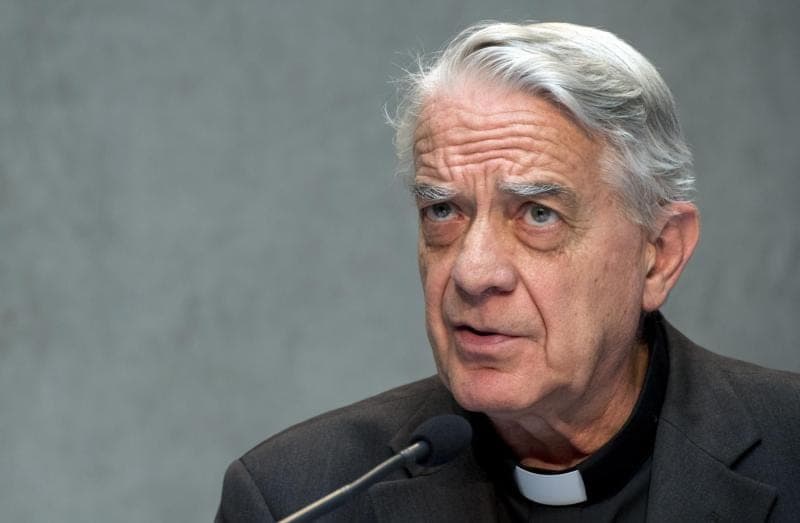ROME — The moderator of the Vatican’s February summit on child sexual abuse has written an article outlining his take on the Church’s most effective models of response for addressing its sexual abuse crisis.
The article, written by Fr. Federico Lombardi, is published in the Jan. 19 issue of the Jesuit-run bi-monthly magazine La Civiltà Cattolica. Lombardi, a Jesuit and former papal spokesman, will be a central actor in the Feb. 21-24 meeting, which will convene the leaders of bishops’ conferences from around the world to discuss the clerical sexual abuse of minors.
Lombardi has long known in Italy as a key figure in the fight against sex abuse by clergy.
In 2011, Lombardi was part of a significant moment related to combating sexual abuse: A conference, “Toward Healing and Renewal,” organized by the Pontifical Gregorian University. The work of the conference become the basis for the establishment of the Gregorian’s Centre for Child Protection, which partially inspired the Pontifical Commission for the Protection of Minors.
In 2017, Lombardi was involved in the organization of the conference “Child Dignity in Digital Age,” which drafted and presented to Pope Francis the “Declaration of Rome,” which proposed new approaches needed to countering sexual abuse in the internet era.
Lombardi is also part of the steering committee of the “Child Dignity Alliance.”
The former papal spokesperson has also gained attention as an expert on sexual abuse issues because of his articles on La Civiltà Cattolica. In an essay last month, he retraced step-by-step the history of the clergy sex abuse crisis and of the Church’s response.
In his most recent article, Lombardi listed some “good practices” for an effective response. Those documents will be likely at the center of the discussions in the February meeting.
Lombardi highlighted the document “Protecting Minors from Sexual Abuse,” issued by the Canadian Bishops Conference, which addresses the effects of abuses on victims and community, explains how to respond to the crisis and outlines “guidelines” for juridical and pastoral procedures.
Lombardi said that “it is expected that every diocese will appoint dedicated people to collect abuse reports and to proceed to preliminary investigations.”
The moderator of the February meeting also praised the diocese in Bergamo, in Northern Italy, which established a specific office in the diocesan Curia, called the “diocesan service for the Protection of Minors.” While such offices are standard operating procedure in the United States, they are less common in other parts of the world.
Lombardi stressed that “the collaboration between dioceses and ecclesial institutions” is crucial, as it is important to “formulate and set up new curricula,” especially to train those on the front line of countering the abuse crisis. The Jesuit noted that “this is difficult in vast areas of the world that lack of experience, resources and competences.”











